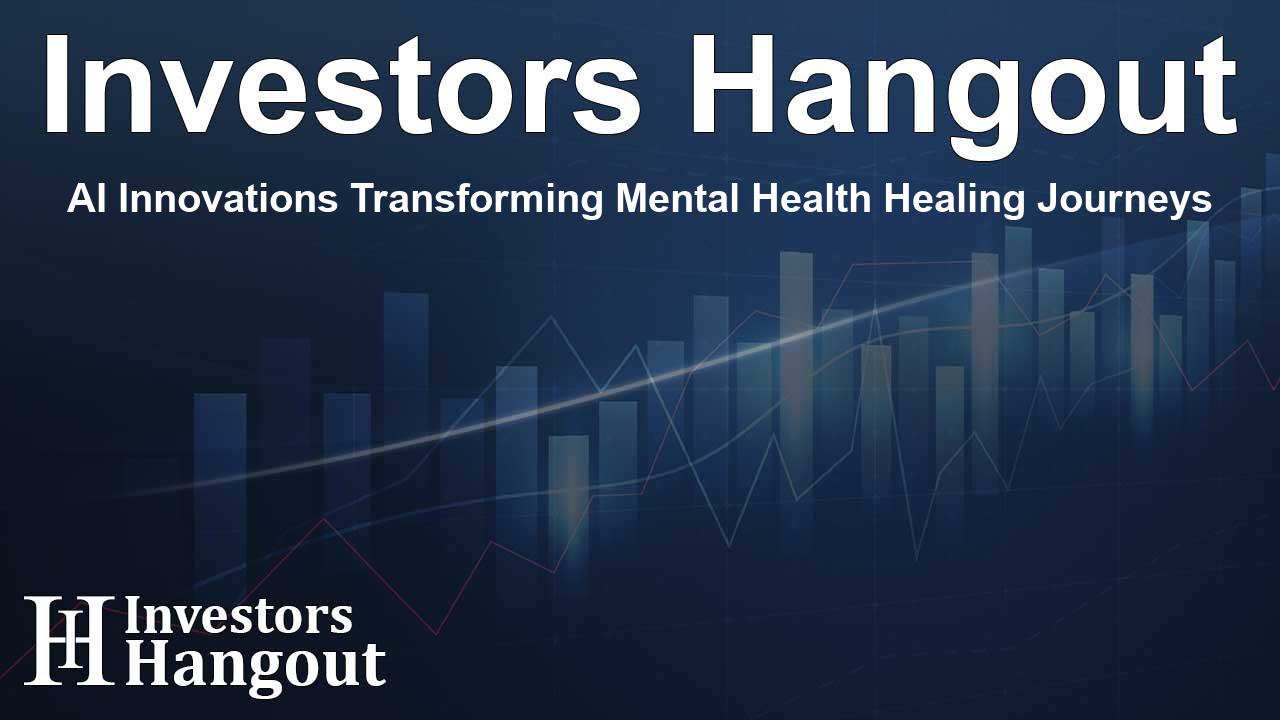AI Innovations Transforming Mental Health Healing Journeys

AI Innovations Transforming Mental Health Healing Journeys
In recent times, advancements in artificial intelligence (AI) have begun to reshape the landscape of mental health treatment. One inspiring story comes from a middle-aged man who found solace in AI during his battle with severe depression. After a difficult period of hospitalization and traditional treatments, he discovered the creative power of AI tools for video production. This shift not only provided an emotional outlet but also marked a significant milestone in his journey toward recovery.
The Role of AI in Mental Health Recovery
Mental health is increasingly recognized as a crucial component of overall well-being, and society's understanding of it has matured. As AI technology continues to evolve, various stakeholders within healthcare, including hospitals and social organizations, are embracing its potential to promote mental wellness and assist those dealing with psychological disorders. Tools like AI-generated images and videos are being utilized to foster therapeutic environments that encourage healing.
Emotional Expression Through Creativity
When struggling with mental health issues, expressing oneself can be a challenge. However, for Ni Beiyue, an avid creator, the integration of AI into his artistic endeavors became a catalyst for recovery. After being introduced to AI generative tools, he began creating short videos that resonated with audiences, amassing millions of views. The artist in him blossomed anew, proving that creativity can be a powerful healing agent.
Building Connections with AI
AI is not only helping individuals like Ni but also extending its reach to vulnerable communities, such as children with autism. Initiatives taken by organizations aim to bridge the communication gap that many autistic individuals face. By employing AI tools, these projects allow children to express their inner thoughts and emotions, creating opportunities for meaningful connections with the world around them.
Scientific Advancements in Diagnostics
The journey toward mental health recovery is often marred by difficulties in obtaining accurate diagnoses. In the past, assessing conditions like autism in young children posed substantial challenges. However, recent AI developments have led to promising systems that enable healthcare professionals to better identify mental health disorders with high diagnostic accuracy rates. By leveraging advanced technologies, practitioners are now able to provide more objective assessments that influence treatment decisions.
Innovation in Mental Health Technologies
These innovations signal a significant turning point in mental health care. AI algorithms are being utilized to analyze various data points, from behavioral patterns to hormonal changes. This enhanced understanding of mental conditions is making it easier to provide tailored treatment plans that cater to individual needs. The potential for expansion into educational and rehabilitation institutions holds particular promise, ensuring that these technologies benefit children and teenagers who are most in need.
Government Support for Mental Health Initiatives
The commitment from the Chinese government to improve mental health care is evident through various initiatives aimed at supporting individuals with conditions such as autism. These public health mandates aim to integrate innovative treatment options, including AI technologies, into mainstream practices. Government-backed programs are set to alleviate the burdens faced by families dealing with autism, making mental health care more accessible than ever.
Moving forward, the collaboration between AI companies, healthcare professionals, and government agencies can lead to transformative outcomes in mental health care. The vision is clearer: by introducing AI-assisted tools and programs, the hope is to not only improve detection but also to enhance recovery strategies for individuals facing mental health challenges.
Frequently Asked Questions
What role does AI play in mental health recovery?
AI serves as a powerful tool in creative expression and therapy, helping individuals process their emotions through innovative methods like video and art creation.
How can AI assist children with autism?
AI tools provide children with autism a means to express their thoughts and emotions, thereby improving their ability to communicate and connect with others.
What are the challenges in diagnosing mental health issues?
Diagnosing mental health disorders, especially in young children, can be complex due to communication barriers and the need for objective assessments.
What is the government's initiative for improving autism care?
The government initiative includes a comprehensive plan to improve care services for autistic children by integrating them into the national health framework.
What can be expected from future AI developments in mental health?
Future developments may include advanced diagnostics and therapeutic options facilitated by AI, leading to more personalized and effective mental health care approaches.
About Investors Hangout
Investors Hangout is a leading online stock forum for financial discussion and learning, offering a wide range of free tools and resources. It draws in traders of all levels, who exchange market knowledge, investigate trading tactics, and keep an eye on industry developments in real time. Featuring financial articles, stock message boards, quotes, charts, company profiles, and live news updates. Through cooperative learning and a wealth of informational resources, it helps users from novices creating their first portfolios to experts honing their techniques. Join Investors Hangout today: https://investorshangout.com/
Disclaimer: The content of this article is solely for general informational purposes only; it does not represent legal, financial, or investment advice. Investors Hangout does not offer financial advice; the author is not a licensed financial advisor. Consult a qualified advisor before making any financial or investment decisions based on this article. The author's interpretation of publicly available data shapes the opinions presented here; as a result, they should not be taken as advice to purchase, sell, or hold any securities mentioned or any other investments. The author does not guarantee the accuracy, completeness, or timeliness of any material, providing it "as is." Information and market conditions may change; past performance is not indicative of future outcomes. If any of the material offered here is inaccurate, please contact us for corrections.